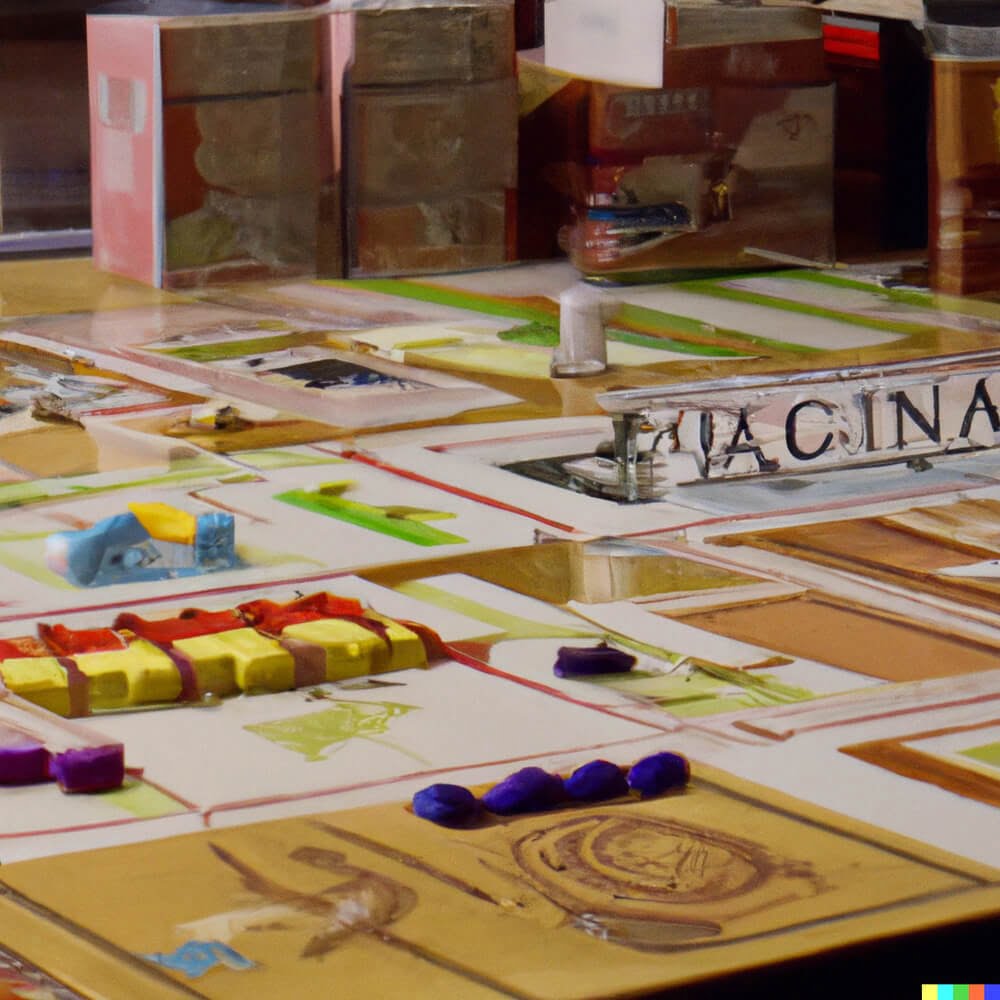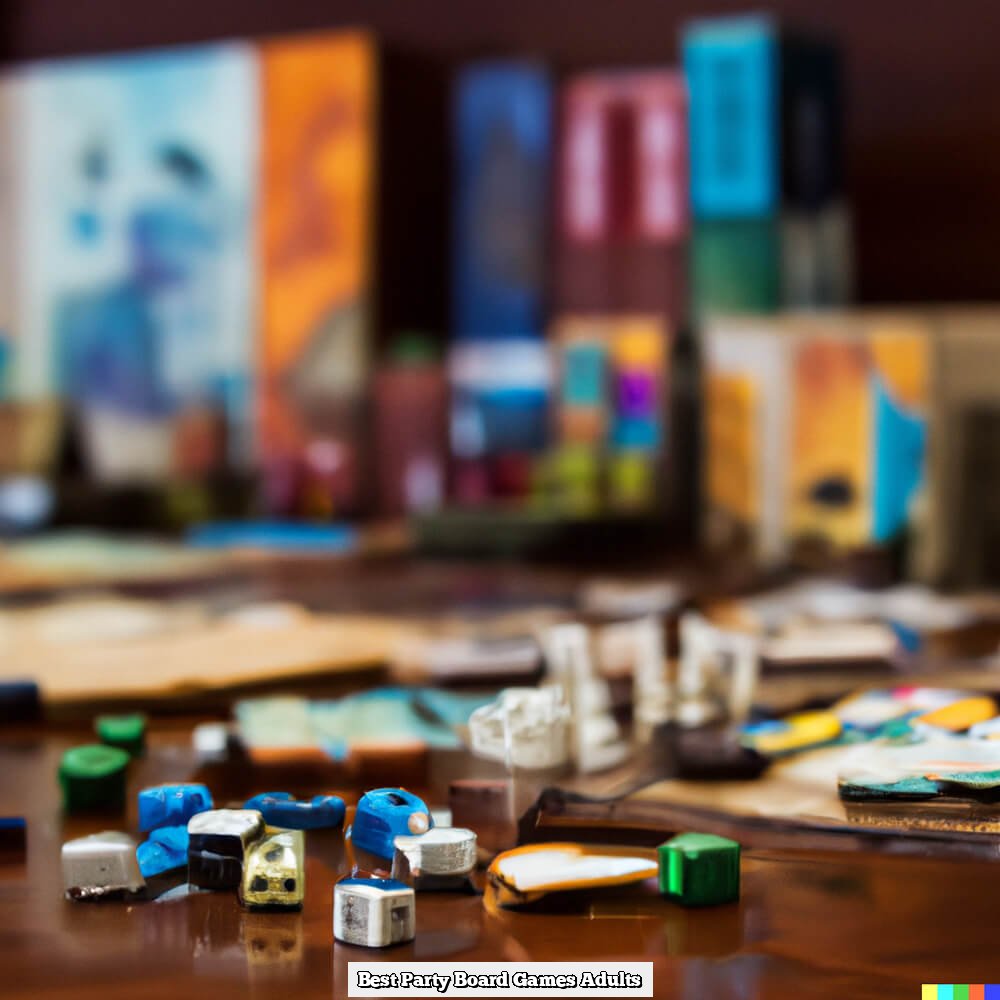Introduction
Hosting a DIY board game party can be one of the best ways to spend an evening with friends and family. Not only does it provide hours upon hours of entertainment, but it also allows everyone to get creative and bring out their competitive sides. There are so many benefits that come along with hosting a DIY board game night, from creating unique artwork to playing thoughtful strategy games which can lead to some great conversations while enjoying a few snacks. By putting together a fun and creative board game set-up at home, you can make sure that each night is different and exciting for everyone involved in the party.
Creating your own board games provides numerous advantages that you can use to have an unforgettable and unique experience with your closest friends or family. For starters, it gives the opportunity for guests to be part of the design experience and feel more involved in the whole event. You can let each person create their own game by utilizing resources such as card decks, 3D models, digitized artwork and other interactive components like dice or sensors. This also makes every night more enjoyable since no two games will ever be the same once you add players’ personal ideas into them. Secondly, it encourages people who don’t usually play board games all that much because they are having fun making something up – being imaginative is key! Thirdly, this improves strategic thinking since party members will need to plan moves ahead of time rather than simply rolling dice hoping for luck ” leading some riveting discussions by the end! Finally, bringing life back into your living room by hosting a DIY party will open up new possibilities that involve various activities such as cooking dinner or creating desserts together ” nothing beats comfort food served around a table full of laughing friends (and maybe a few savory snacks!).
Planning Ahead
One of the best ways to host a DIY board game party is to plan ahead. Start by choosing the type of game that would be best suited for the group. Make sure to take the ages and interests of your guests into account. There should also be either a structured tournament or larger free-for-all game play plan so that people know what to expect when they arrive.
Next, get some basic materials for the games you have chosen. This may include things like scorecards, dice, tokens, boards, and other pieces that may be needed. You can also create your own unique items depending on how creative you want the party to be. It could be fun to craft some homemade cards or chips with a personalized message!
Once all of the necessary supplies are gathered up, it is time to make decorations and arrange food and drinks so that everyone is comfortable while playing their games. Streamers in bright colors associated with board gaming along with cozy seating arrangements really bring home the feel of a true-blue board game party atmosphere! In addition, themed snacks related to specific games will entice players when it’s time for refreshments and reward any victors during the session breaks.
Lastly, don’t forget about making sure everyone understands how each game works! Before people start playing their selected games, run them through some quick practice rounds so that everybody knows what they’re doing once it’s time for serious gameplay. Once feelings of familiarity are established between friends, there will hardly be a dull moment! These points should help provide an enjoyable experience while ensuring a successful board game session with friends ” something that everybody can enjoy!
Types of Board Games Explained
Board games have been a source of enjoyment for friends and family for decades. While some of the more classic board games are widely known, there are also a variety of new and exciting party board game options to choose from. These party board games can provide hours of laughter, debate and entertainment!
The most popular type of party board game is the traditional strategy game, which may involve negotiation or resource management. Examples include monopoly, Risk, Carcassonne, Ticket to Ride and Settlers of Catan. These strategy board games usually involve multiple players who take turns rolling dice and moving their pieces around the board in order to transfer money or resources around the board while vying for control over certain objectives on the playing field. Most strategy games require thought and planning in order to succeed. However, there are also simpler versions made especially for younger children.
In addition to strategy-based games, party board games can also include trivia based questions like Family Feud or Trivial Pursuit. With this type of game, participants must answer multiple choice questions with categories that cover knowledge from a specific topic such as history or science. Making these rounds even more interesting is the ability to add themed cards that provide players with additional rounds or bonus points if they are answered correctly.
Many boards also offer mini-games that act as additional levels within a larger game. For example, a single round Monopoly could easily become an all-night event by adding mini-games like The Hunger Games based on popular films or TV shows about surviving in harsh environments. These additions can serve as a refresher between rounds during longer games or simply provide an extra bit of fun throughout an entire evening!
Crafting Your Own Board Game
DIY board games can be a delightful and unique way to add an extra dimension of fun to your next party. Making your own board game not only gives you control over the rules and outcomes, you can also engage your guests with a personalized game experience that encourages creativity and team-play. The good news is, it’s not as hard as it may seem. With a little planning ahead, you can create an unforgettable board game that will spark chatty conversations and hours of belly laughs!
When DIYing your own board game, one of the first things to consider is how many players the game will accommodate”this will determine the size of the boards you’ll need to make and how intricate the rules need to be. You’ll also want to set aside some time for designing cards or special pieces that are necessary for playing; look around for materials like paper, PVC, fabric or felt if required. If desired, you can always use software programs or computer aided design tools such as Adobe Illustrator to help bring your designs to life in full color.
To make things easier, try using existing board games as inspiration ” draw from themes like treasure hunt or snakes and ladders”or come up with entirely different ones for limitless possibilities! Or take the classic clue example; come up with several mysteries that have in-game clues leading players closer to finding suspects and solving crimes. Whatever theme you choose should include aspects like objectives (what has to be completed by each player), play area (where pieces move around), jumps/skips (events which advance/delay progress), win points (locations where bonus points are collected) etc.
Finally, create rules for each player including any restrictions “making sure everyone understands all parts before beginning gameplay”and ensure there is no chance for cheating among participants by having referees watch each match closely. Most importantly, have fun with it! When it comes down to it, crafting your own board game offers an exciting prospect: Crafting memories with friends while playing something uniquely yours!
Setting Up the Board Game
1. Gather all the necessary materials ” before you can have a board game night, you’ll need to gather all the necessary accessories like dice, cards, tokens, and boards. You might also need to print out some game rules if you are playing a homemade game.
2. Place the board in the middle of the room ” once all of your materials are gathered place the board in the middle of the room so that everyone around it can see it easily.
3. Divide up players into teams or individuals ” depending on which type of game you choose to play, decide what team sizes should be larger and then divide up players into teams or as individuals.
4. Hand out equipment ” make sure each player has his or her own set of dice, cards and tokens that correspond with the board game being played.
5. Explain game rules ” most games will come with an instruction booklet or online version of rules explaining how to properly play that specific party board game DIY project but it is important to take time to explain them before beginning play.
6. Setup timer (if applicable) ” some party games have timers built in or require a separate timer that you will need to set up prior to beginning play if applicable for your particular game being played.
7. Start playing! Once everyone is clear on all rules, players have their equipment and any timers are set – it’s time to start having fun!
Time to Play
Are you looking to host a fun, interactive and engaging board game party? From customizing the rules of your favorite classic board games, to creating your own unique ones, there’s no denying that DIY board game parties are an immensely popular way to spend time with family and friends. With a little creativity, you can make any board game night just as entertaining as playing a full-fledged RPG campaign or bingeing on the latest blockbuster movie.
A great way to kick off your party is by having each guest choose their own custom character piece for the game ” this can be anything from a face made out of clay to disposable plates or cups with hand drawn faces on them. This will help everyone customize their gaming experience while also making it an enjoyable bonding activity. To keep everyone engaged during the party, encourage players to bring along interesting items that can be converted into tokens or pieces used to interact with the board game such as dollar bills or small toys. Have each player consider how they could use these items in-game and challenge them to develop creative strategies for utilizing them!
If none of the regular games in your cupboard seem appealing then why not create a brand new one? Brainstorm some simple rules and come up with a goal each player needs to reach or an activity they must complete in order to win the game. If it’s within your budget you could even purchase some extra supplies such as poker chips or ping pong balls so players have another option other than traditional dice for rolling numbers.
No matter what kind of board game you decide on playing at your party, have fun and enjoy quality time together!
Making the Most Out of Your DIY Board Game Party
There are plenty of ways to make your next DIY board game party even more enjoyable and engaging. Here are a few tips to help you out:
1. Ask for help from your guests: Encourage everyone in attendance to join in on the fun by helping build the boards or offering their own ideas ” it’s a great way to foster team building among your friends and family!
2. Create an atmosphere conducive to play: Be sure you’ve got enough seating, snacks, drinks, and music so that everyone is comfortable and has all the tools they need for a fun-filled evening of gaming.
3. Choose interesting themes: Utilize themes like superheroes, monsters, movies, or any other unique ideas that can be adapted into gameplay. This will give the board games more character and will keep everyone engaged while playing them.
4. Make some props: Adding props or other embellishments can really spice up the party atmosphere ” make magic wands, decorate dice with stars and moons, draw witch hats on cards ” these added touches will give your board games a unique flair!
5. Keep it simple: Don’t try to overcomplicate your game instructions; start off easy so people know what they’re doing and don’t get too overwhelmed as they learn how to play each round. Remember… it’s all about having fun!
Conclusion
Hosting a DIY board game party allows friends and family to come together for a fun and social evening of competition and entertainment. Participants can expand their creativity by customizing their own games and designing interesting challenges. They can also enjoy the satisfaction of competing against each other in custom-designed board games, which encourages problem-solving skills, imaginative thinking, strategizing, and team work. Furthermore, hosting these kinds of game nights are relatively inexpensive since the hosting group mostly only needs paper, cardstock, markers, dice, pieces from old board games, Popsicle sticks and other craft supplies found around the home. A DIY board game party is an excellent way for friends and family to gather together regardless of physical distancing restrictions while promoting friendly competition and getting everyone involved in something meaningful.

I love playing all kinds of games – from classics like Monopoly to modern favourites like Ticket to Ride.
I created this blog as a way to share my love of board games with others, and provide information on the latest releases and news in the industry.





